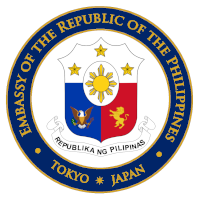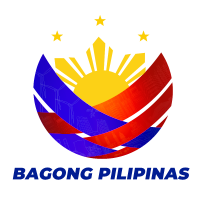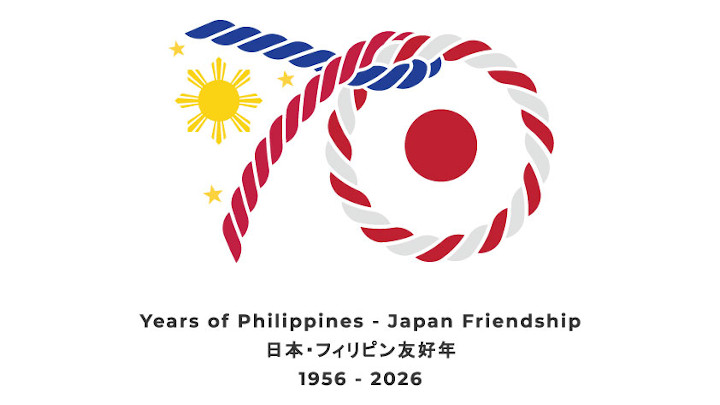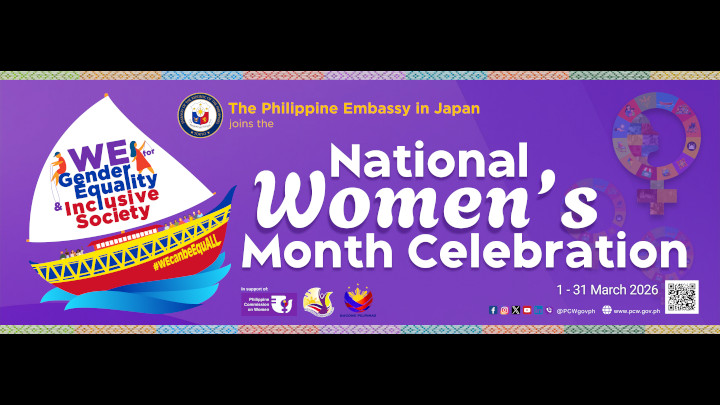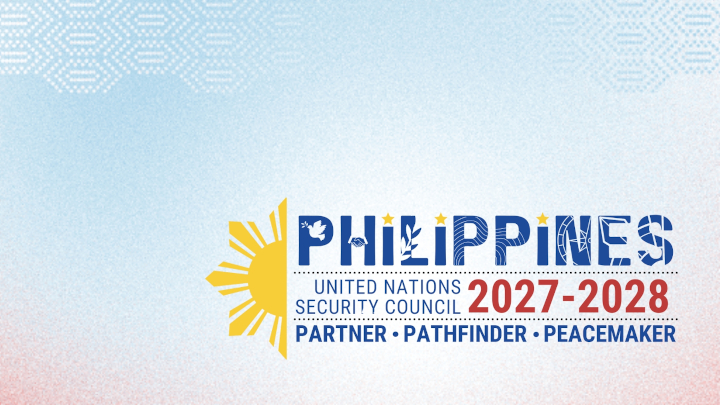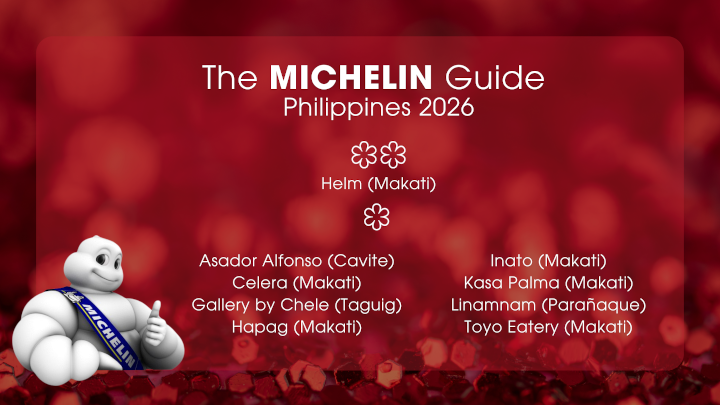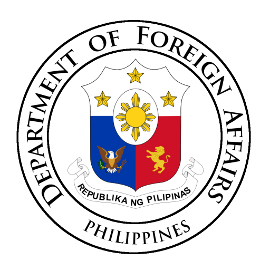Statement by Secretary of Foreign Affairs Albert del Rosario on the UNCLOS Arbitral Proceedings against China to Achieve a Peaceful and Durable Solution to the Dispute in the WPS
Notification and Statement of Claim on West Philippine Sea
22 January 2013
Good afternoon, ladies and gentlemen of the print and broadcast media.
I have the honor to introduce to you the Honorable Solicitor General of the Philippines Francis H. Jardeleza who stands with me here today.
This afternoon, the Philippines has taken the step of bringing China before an Arbitral Tribunal under Article 287 and Annex VII of the 1982 United Nations Convention on the Law of the Sea (UNCLOS) in order to achieve a peaceful and durable solution to the dispute over the West Philippine Sea (WPS).
At around one o’clock this afternoon, the Chinese Ambassador to the Philippines H.E. Ma Keqing was summoned to the Department of Foreign Affairs and was handed a Note Verbale by Assistant Secretary Teresa Lazaro. The Note Verbale contains the Notification and Statement of Claim that challenges before the Arbitral Tribunal the validity of China’s nine-dash line claim to almost the entire South China Sea (SCS) including the WPS and to desist from unlawful activities that violate the sovereign rights and jurisdiction of the Philippines under the 1982 UNCLOS.
I furnish you with a copy of the Note Verbale with the Notification and Statement of Claim.
This Notification initiates the arbitral proceedings under Article 287 and Annex VII of UNCLOS.
The initiation of Arbitral Proceedings against China on the nine-dash line is an operationalization of President Aquino’s policy for a peaceful and rules-based resolution of disputes in the WPS in accordance with international law specifically UNCLOS.
The Philippines has exhausted almost all political and diplomatic avenues for a peaceful negotiated settlement of its maritime dispute with China. On numerous occasions, dating back to 1995, the Philippines has been exchanging views with China to peacefully settle these disputes. To this day, a solution is still elusive. We hope that the Arbitral Proceedings shall bring this dispute to a durable solution.
Our legal position before this UNCLOS Arbitral Tribunal is explained in this carefully crafted Notification and Statement of Claim. I invite the media to study closely the legal document we have given you so as to accurately report on the Philippine legal position.
Allow me, however, to highlight some salient points in the Notification and Statement of Claim:
The Philippines asserts that China’s so-called nine-dash line claim that encompasses virtually the entire South China Sea/West Philippine Sea is contrary to UNCLOS and thus unlawful.
Within the maritime area encompassed by the 9-dash line, China has also laid claim to, occupied and built structures on certain submerged banks, reefs and low tide elevations that do not qualify as islands under UNCLOS, but are parts of the Philippine continental shelf, or the international seabed. In addition, China has occupied certain small, uninhabitable coral projections that are barely above water at high tide, and which are “rocks” under Article 121 (3) of UNCLOS.
China has interfered with the lawful exercise by the Philippines of its rights within its legitimate maritime zones, as well as to the aforementioned features and their surrounding waters.
The Philippines is conscious of China’s Declaration of August 25, 2006 under Article 298 of UNCLOS (regarding optional exceptions to the compulsory proceedings), and has avoided raising subjects or making claims that China has, by virtue of that Declaration, excluded from arbitral jurisdiction.
In this context, the Philippines is requesting the Arbitral Tribunal to issue an Award that, among others:
– Declares that China’s rights in regard to maritime areas in the South China Sea, like the rights of the Philippines, are those that are established by UNCLOS, and consist of its rights to a Territorial Sea and Contiguous Zone under Part II of UNCLOS, to an EEZ under Part V, and to a Continental Shelf under Part VI;
– Declares that China’s maritime claims in the SCS based on its so-called nine-dash line are contrary to UNCLOS and invalid;
– Requires China to bring its domestic legislation into conformity with its obligations under UNCLOS; and
– Requires that China desist from activities that violate the rights of the Philippines in its maritime domain in the West Philippine Sea.
The Philippines asserts that the Arbitral Tribunal has jurisdiction to hear and make an award based on its Notification and Statement of Claim because the dispute is about the interpretation and application by States Parties of their obligations under the UNCLOS. Article 287 (1) of UNCLOS provides that “settlement of disputes concerning the interpretation and application of this Convention” may be referred by the Parties for resolution under Part XV of UNCLOS.
The Philippines further asserts that the claim is well founded in fact and law based on the Notification and Statement of Claims and supplementary documents that will be submitted in the course of the arbitral proceedings.
Solicitor General Francis H. Jardeleza is the agent or legal representative for the Philippines in this Arbitral Proceedings. The lead counsel of the Philippines is Mr. Paul Reichler of Foley and Hoag LLP.
The Philippines has always asserted that international law including UNCLOS will be the great equalizer in resolving this dispute over the West Philippine Sea.
While we proceed with the legal track, the Philippines continuous to exert all efforts to move forward and enhance its relations with China on the basis of mutual respect.
We strongly believe that this action is the appropriate response to put our diplomatic relations in its proper context.
We hope that China would join us in this aspiration.
This ends our press briefing, ladies and gentlemen.
We will give you a set of questions with corresponding responses to complete your information.
We thank you as we understand you have a deadline to meet. END
———————————————————————————————————
Department of Foreign Affairs
Q & A on the UNCLOS Arbitral Proceedings against China to Achieve a Peaceful
and Durable Solution to the Dispute in the West Philippine Sea
23 January 2013
1.Why are we bringing China to an arbitral tribunal?
China’s 9-dash line claim encompasses practically the entire West Philippine Sea (WPS). We must challenge the unlawful claim of China under their 9-dash line in order to protect our national territory and maritime domain.
2.Why do we have to do this now?
Having exhausted all possible initiatives, we feel the time to act is now. If we do not act now, we will be in default.
3.What is the basis of our legal action?
The legal action is pursuant to the President’s constitutional mandate to pursue the national interest and defend the Philippine territory and maritime domain. It also pursues the policy of a rules-based approach based on international law, especially UNCLOS, in resolving the disputes in the WPS.
4.What do we expect from this arbitral tribunal?
We hope that the arbitral tribunal will issue an award in accordance with international law that will direct China to respect our sovereign rights and jurisdiction over our EEZ, continental shelf, contiguous zone, and territorial sea over the West Philippine Sea, and to desist from undertaking unlawful acts that violate our rights.
5.What is the process of arbitration?
Under Annex VII of UNCLOS, the arbitration process begins by notifying the other party to the dispute and giving a statement of facts on which the notification is based.
In accordance with this process, the Philippines through the DFA handed the Note Verbale to the Chinese Ambassador in Manila in the afternoon of 22 January 2013 notifying China that the Philippines is bringing the dispute in the WPS before an arbitral tribunal under Annex VII of UNCLOS.
The next step is to form the 5-member arbitration panel. When the panel is formed, the parties will present their documents to further explain their case.
6.Is the legal track the only option?
We have adopted three tracks in terms of the political, diplomatic and legal approaches. At this stage, the legal track presents the most durable option to defend the national interest and territory on the basis of international law.
7.Who filed the case and where?
The Philippines filed the arbitration case against China. The parties will have to agree on the place where the arbitral tribunal will hold the hearing of the case.
Under UNCLOS, Parties to a dispute have the choice on where to file the case, either in the International Court of Justice, ITLOS, arbitral tribunal and special arbitral tribunal. The Philippines chose to bring this case before the arbitral tribunal because it believes it is the appropriate body to hear the complaint of the Philippines against China.
8.How long will the arbitration process last?
Based on the cases so far handled by international tribunals on maritime disputes, the case would take 3-4 years.
9.Will we win our case?
We believe we have a very good case under international law. In any legal action, however, there are many different factors to consider. What is more important is that we are able to present our case against China and defend our national interest and maritime domain before an independent international tribunal. We expect international law to be the great equalizer.
10. Who are the members of the PH legal team?
Solicitor General Francis H. Jardeleza is the agent or the legal representative of the Philippines in this arbitration case. Mr. Paul Reichler of the Washington law firm Foley and Hoag is the lead counsel.
11. Why are the other countries not filing a case against China?
The Philippines is taking action based on its national interest and not on the actions or non-action of other countries.
12.What if China refuses to participate in the arbitration?
The Philippines will pursue the procedures and remedies available under Annex VII of UNCLOS to achieve the award outlined in the Statement of Claim.
Annex VII of UNCLOS provides for compulsory proceedings with binding decision.
13. What’s next for the Philippines?
The Philippines will now prepare for the formation of the 5-member arbitration panel and agree on the venue.
14. Do you have the support of the other branches of the government?
Yes, all the three branches of the Philippine Government support the President’s decision to bring the dispute in the West Philippine Sea before the UNCLOS arbitral tribunal.
15. What will be the effects on Philippines-China economic relations?
As arbitration is friendly and peaceful, we hope that there will be no adverse effects on our trade with China. President Aquino and President Hu Jintao agreed that the bilateral agenda will be moved forward while contentious issues will be abstracted for separate treatment.
We are all for improving our economic relations with China but it should not be at the expense of surrendering our national sovereignty.
16. What will be the effects on tourism?
The Philippines and China have an incredible people-to-people engagement. We look forward to enhance it through an effective tourism program.
17. What will happen to our OFWs who may be affected by this action?
The Philippine Government will provide the appropriate safety net for the OFWs.
18. Did the US and Japan influence your decision to take this action?
No. The Philippines is taking this action independently.
19. What are the opinions of the different sectors in Philippine society?
While there are varied opinions on the dispute, nevertheless, all Filipinos should unite to support the President’s constitutional mandate to protect Philippine territory and national interest.
20. Will this result into a military conflict?
China is a good friend. Arbitration is a peaceful and amicable process to settle a dispute between and among friends.
21. What will happen to PH-China relations?
We will continue to pursue an enhancement of our bilateral relations in all areas of cooperation.
22. Would this action affect ASEAN?
We are counting on ASEAN to support us in finding a peaceful and durable solution to the dispute. The Philippines must protect its own national interest in this regional forum as well as in other fora in order to enhance the respect of our international partners who support our cause.
23. Would discussions on the Code of Conduct (CoC) continue?
Yes, the Philippines will continue to work with ASEAN and China in crafting the Code of Conduct and implement the commitments of ASEAN Member States and China in the Declaration on the Conduct of Parties in the South China Sea (DOC).
24. Why can we not do joint development with China?
Joint development, following the Chinese model, is a violation of the Philippine Constitution. Joint development should be in accordance with Philippine law.
25. How much will this cost the Filipino people?
One cannot put a price in the concerted effort of the Filipino people and government in defending our patrimony, territory, national interest and national honor.
26. Why should the Filipinos support this action?
If someone forces himself into your house and tries to unlawfully take away what belongs to you, should you not take action against the intruder? Our action is in defense of our national territory and maritime domain.
27. How can all Filipinos help in promoting a positive result of this legal initiative?
All Filipinos should stand behind the President to defend what is ours in accordance with the Philippine Constitution. We should all firmly demonstrate our patriotism. We should all stand united as one before the whole world to manifest the President’s leadership on this issue. END
